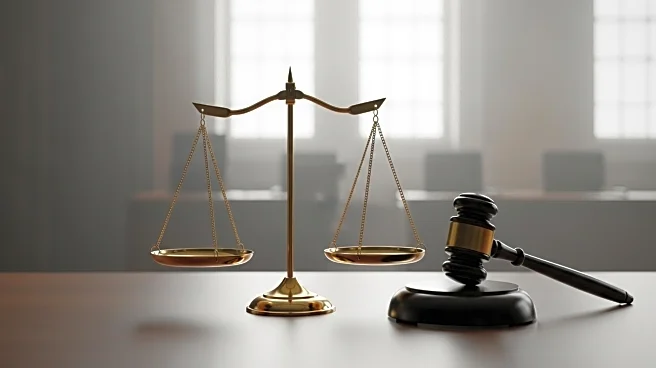What's Happening?
The Department of Homeland Security (DHS) is reportedly on track to deport nearly 600,000 undocumented immigrants by the end of 2025. This aggressive enforcement has led to legal claims from several U.S. citizens and a green card holder, alleging wrongful detention and racial profiling during immigration arrests. Among the claimants is Cary Lopez Alvarado, a U.S. citizen who was detained while pregnant and later gave birth. The claimants allege mistreatment by federal officers, including physical abuse. The Supreme Court recently froze a district court's restraining order that prevented federal immigration authorities from stopping individuals without reasonable suspicion of unlawful presence in the U.S., raising concerns about potential racial profiling.
Why It's Important?
The legal claims against DHS highlight significant concerns about civil rights and due process in immigration enforcement. The allegations of wrongful detention and racial profiling could have broader implications for U.S. citizens and legal residents, potentially affecting public trust in federal agencies. The Supreme Court's decision to freeze the restraining order may lead to increased scrutiny of immigration practices and policies, impacting how enforcement is conducted across the country. This situation underscores the tension between national security measures and individual rights, with potential consequences for public policy and societal norms.
What's Next?
The legal claims filed by Lopez Alvarado and others may lead to further investigations and potential changes in DHS policies. Advocacy groups and legal experts are likely to continue monitoring the situation, pushing for reforms to ensure fair treatment and due process in immigration enforcement. The Supreme Court's involvement suggests that future legal challenges could arise, potentially influencing the balance between security and civil liberties. Stakeholders, including lawmakers and civil rights organizations, may engage in discussions to address these issues and propose legislative or policy changes.











